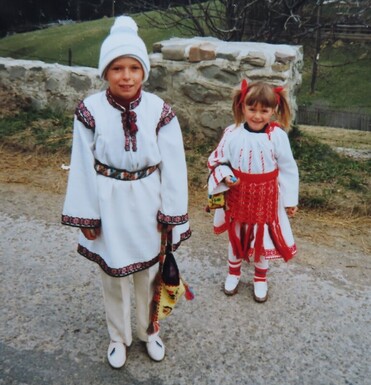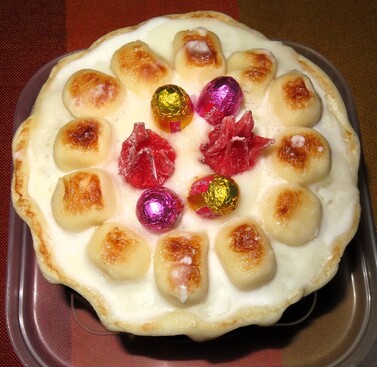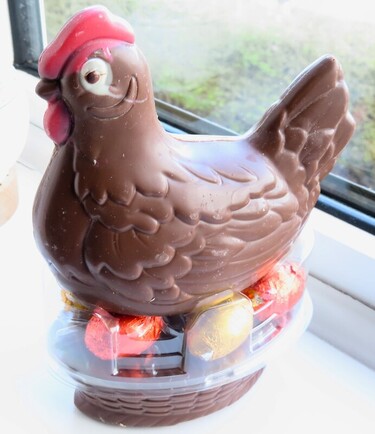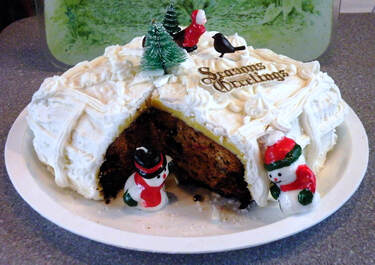Food for Thought
 Easter Sunday morning in the Carpathian Mountains
Easter Sunday morning in the Carpathian Mountains
It’s interesting that all the former religious festivals throughout the year, themselves usurping earlier celebrations of solar and seasonal cycles, are now commandeered by the merchants of capitalism. Thankfully (but to whom can we now give thanks?) traditional elements of festival food survive: Christmas cakes and puddings, turkeys, mince pies, pancakes, fish, lamb, Simnel cake, hot cross buns, chocolate hares, rabbits and eggs, and pumpkins. In an act symbolic of the times (1990), during one of our visits with relief supplies for Romanian Orphanages, on Easter Sunday in the Carpathians we swopped small chocolate eggs from Huddersfield market for red-dyed and painted hard-boiled eggs carried in little baskets by traditionally dressed Orthodox children. This is how a tradition crosses borders and is carried on.

In celebration of Easter and coincidentally this year the advent of British Summer Time, Margaret baked and assembled an impressive 12-piece Simnel Cake. One piece will be cut for absent friends but, since by definition they are not present, we will have to eat it ourselves.
Anne MacKenzie reminds us that traditionally the cake had only eleven marzipan balls, representing the twelve Apostles less Judas. In our version, a missing ball would have meant that Barry couldn't wait!
The two crystalised hibiscus flowers were a gift from Greek friends who have a great bicycle shop in Finikounda in the southern Peloponnese.
Anne MacKenzie reminds us that traditionally the cake had only eleven marzipan balls, representing the twelve Apostles less Judas. In our version, a missing ball would have meant that Barry couldn't wait!
The two crystalised hibiscus flowers were a gift from Greek friends who have a great bicycle shop in Finikounda in the southern Peloponnese.

From Lidl, the ultimate exponent of Germanic capitalism, here is our Mrs Henrietta Hen and her six still-wrapped chocolate eggs newly laid on a chocolate nest.
No doubt this innovation has already crossed the Carpathians, reaching to the border with Ukraine and perhaps beyond to encroaching Russia, eager for the fruits of capitalism.
The egg itself is a symbol of fertility and Resurrection, new life emerging from the eggshell. The word 'Easter' is derived from the Old English Ēastre, the name of the Germanic goddess of the dawn, whose festival was celebrated at the vernal equinox. From Proto-Germanic Austrǭ. The modern German 'Ostern' means Easter.
No doubt this innovation has already crossed the Carpathians, reaching to the border with Ukraine and perhaps beyond to encroaching Russia, eager for the fruits of capitalism.
The egg itself is a symbol of fertility and Resurrection, new life emerging from the eggshell. The word 'Easter' is derived from the Old English Ēastre, the name of the Germanic goddess of the dawn, whose festival was celebrated at the vernal equinox. From Proto-Germanic Austrǭ. The modern German 'Ostern' means Easter.

Here is the cake that was baked by Margaret and iced by Barry (piping ran in his family) whilst camped just outside Ancient Troy in December 2010. In Asian Turkey, just on the eastern side of the Dardanelles, this was the only sign of Christmas and it didn't last long!